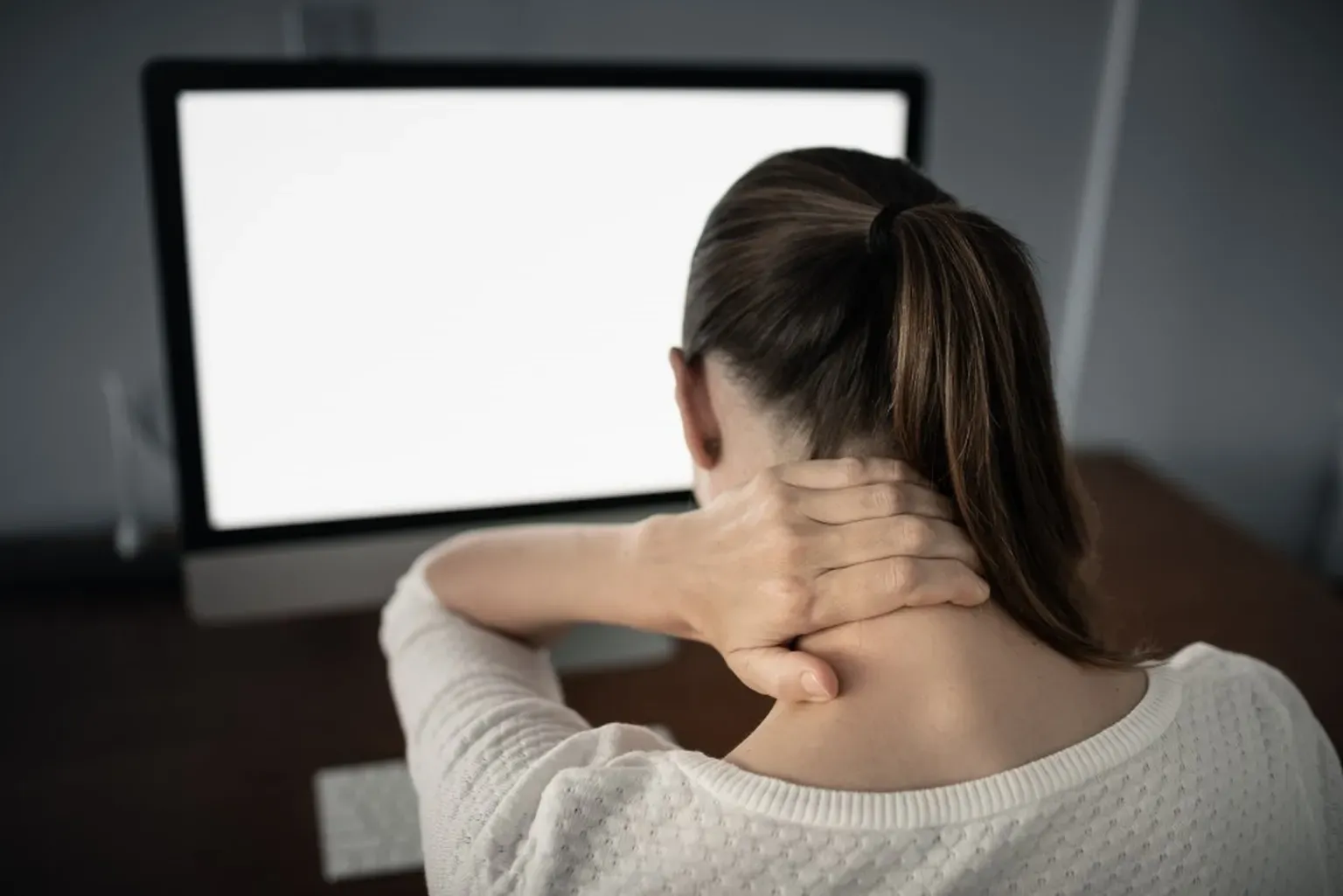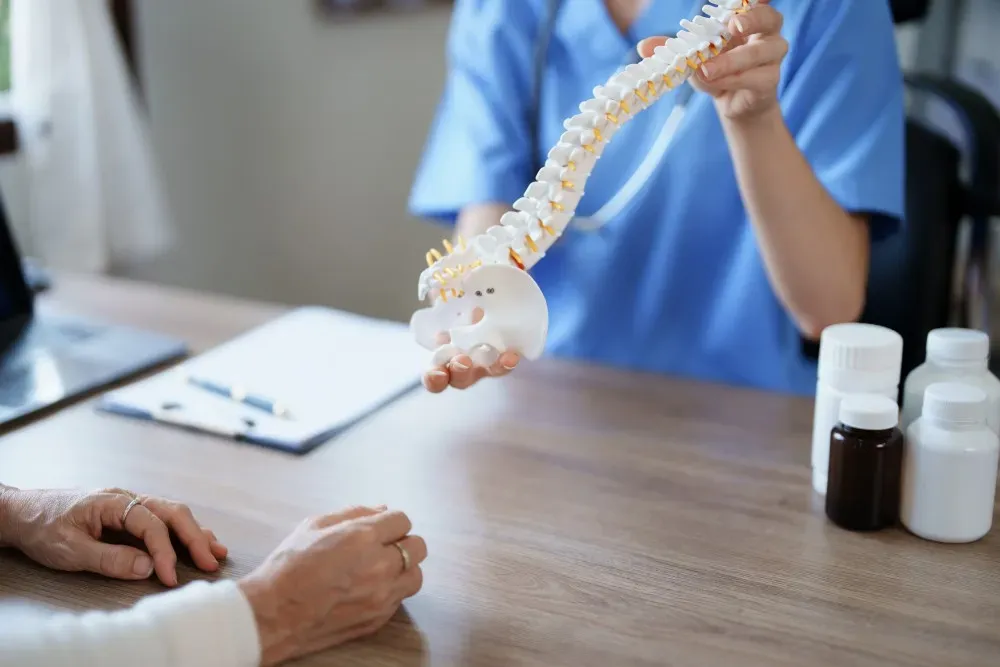Neurosurgery & Orthopedic Surgeons in Jacksonville

5 Common Symptoms of a Pinched Nerve
A pinched nerve in your neck occurs when soft tissues in the body apply too much pressure to a nerve and restrict its ability to function properly.
A pinched nerve in your neck occurs when soft tissues in the body apply too much pressure to a nerve and restrict its ability to function properly. Bones, muscles, tendons, ligaments and cartilage can all press against a nerve, causing irritation, inflammation and pain. The most common places for a pinched nerve to develop are in your low back and neck, where nerve roots travel out of the spinal canal and send sensations to other areas of your body.
What causes a pinched nerve in the neck or back? A bulging or herniated disc, inflammation and degenerative changes from arthritis, bone spurs, a back injury, chronic stress from repetitive movements or obesity can all cause soft tissues to compress a nerve or the spinal cord. Aging, being overweight, playing high-impact sports or having a job that requires physically demanding, repetitive work can all increase your risk of developing a pinched nerve.
If you’re experiencing unexplained back or neck pain, keep reading to learn 5 symptoms that may indicate you have a pinched nerve.
1. RADIATING PAIN
When a nerve is pinched, pain usually radiates along some or all of the pathway where the nerve supplies sensations or movement. In the cervical spine, a pinched nerve may cause neck pain that radiates down the shoulder, arm, hand and fingers. In the lumbar spine, a pinched nerve may cause back pain that radiates down the hip, buttock, leg and foot. The pain can feel sharp, burning or aching.
Sciatica describes a set of symptoms that present when the large sciatic nerve in the lumbar spine is compressed. The hallmark sign of sciatica is one-sided pain that travels from the low back to the buttock, back of the thigh, calf and foot.
If you have a compressed nerve in the low back, the pain may be worse during periods of prolonged sitting or standing, positions that exert more pressure on the spine and nerves. You may also notice sudden, shooting pain during forceful movements like coughing, sneezing or laughing. If you have a compressed nerve in the neck, pain and stiffness may be worse when you try to turn your head.
2. NUMBNESS OR DECREASED SENSATIONS
You may feel numbness or a loss of sensation in the area of the body that’s affected by the pinched nerve. If you have a pinched nerve in the neck, numbness can affect the shoulder, arm, hand or fingers. If you have a pinched nerve in the back, numbness can affect the buttock, leg or foot.
3. TINGLING OR PINS AND NEEDLES FEELING
Feeling tingling, pins and needles or pinprick-like sensations along the pathway of a nerve is a common sign of nerve compression. If you have a compressed nerve in the neck, you may experience tingling sensations down the shoulder, arm, hand and fingers. If you have a compressed nerve in the low back, you may experience tingling sensations down the buttock, leg and foot.
4. MUSCLE WEAKNESS
Nerve compression can cause muscle weakness and loss of motor function to the areas of the body affected by the pinched nerve. Depending on the location of the compressed nerve, you may have difficulty walking normally or grasping and holding objects in your hand. If there’s seemingly no explanation for unexpected weakness, it may be a sign of a pinched nerve.
5. A HAND OR FOOT “FALLS ASLEEP” FREQUENTLY
It’s normal to experience a “falling asleep” sensation from sitting or lying on a hand or foot for too long. In those cases, an unnatural body position is causing temporary compression that’s relieved when you move or walk around. But if you’re experiencing frequent “falling asleep” sensations, or if it happens out of nowhere for no clear reason, it may be a sign of a pinched nerve in the neck or back.
WHAT TO DO IF YOU THINK YOU HAVE A PINCHED NERVE
If you’re experiencing any of the symptoms listed above, seek medical advice. Your doctor will perform an examination and order imaging exams to confirm a diagnosis of a pinched nerve. Luckily, many cases of nerve compression resolve with at-home care and treatment. During the healing process, your doctor will recommend resting and modifying activities that irritate or put stress on the damaged nerve. Over-the-counter pain medications and ice/heat compresses can help ease mild to moderate pain and inflammation. Your doctor may also recommend a course of physical therapy. A physical therapist can teach you stretches and exercises to reduce your pain and relieve pressure on the compressed nerve.
If you’re still experiencing pain and symptoms after several weeks, you may need surgery. Left untreated, a compressed nerve can cause long-term pain and permanent nerve damage. At Integrity Spine and Orthopedics, our surgeons specialize in minimally invasive spine procedures to remove or repair a bone spur, herniated disc or vertebral bone that’s compressing a nerve or the spinal cord in the neck or back. Our minimally invasive surgeries are performed as outpatient procedures, so that you can return home the same day as surgery. Many of our patients return to their normal activities within a few weeks.
You can learn more here: 5 Advantages of Minimally Invasive Procedures
INTEGRITY SPINE AND ORTHOPEDICS TREATS SPINE AND JOINT CONDITIONS
Integrity Spine and Orthopedics specializes in performing minimally invasive spinal procedures for a range of painful spine conditions, including herniated discs, arthritis of the spine, spinal stenosis, compressed nerves and bone spurs. We also offer pain management and general orthopedic services to help you manage acute or chronic back, joint and nerve pain.
Please call us at 904-456-0017 to request an appointment to see one of our board-certified orthopedic doctors in our Jacksonville, FL, clinic location. We also offer free MRI reviews to qualified patients — contact us today for more information.




